Is it health, hygiene or a ‘green’ consumer conscience which is driving the sales of filtered water taps?
While instant hot water taps may have recently captured consumer imagination, it doesn’t mean filtered taps have slowed.
In fact, marketing manager of Blanco UK John Robinson comments: “We have seen a strong growth in demand for filtered water taps over the last two years.”
Sponsored Video
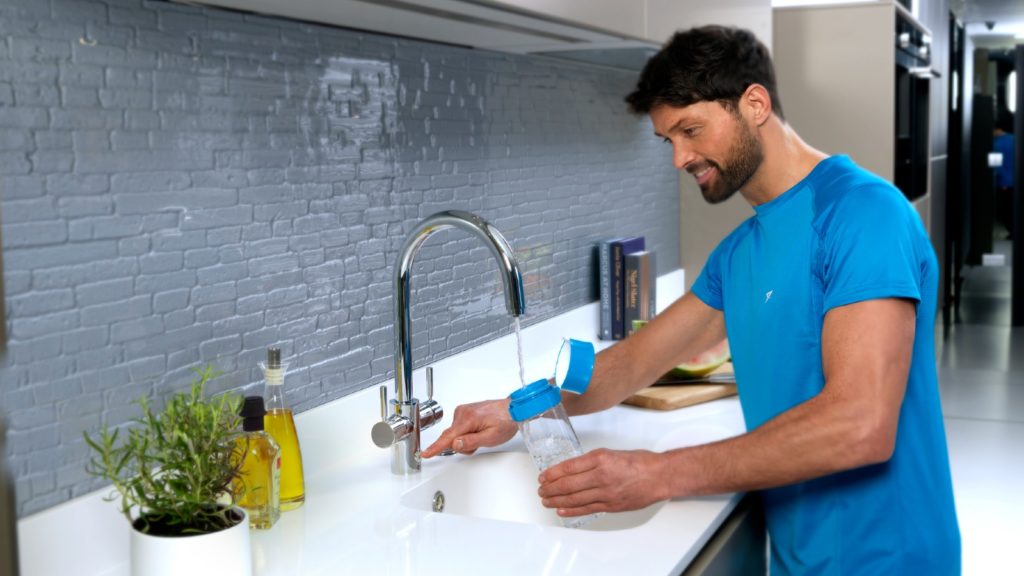
The NeoChiller can be connected to a range of InSinkErator taps, including the 4N1 Touch model. It allows users to dispense instant filtered, chilled water between 3°C to 10°C
Such has been the interest in filtered water tap systems, and in particularly a chilled option, InSinkErator has presented the NeoChiller and boiling water tap manufacturer Quooker introduced filtered cold water options for all of its taps.
Managing director of Quooker UK Stephen Johnson points to the success: “Around 70% of all Quooker taps purchases are bought with the cold water filter – designed so that you can quickly switch between tap water and ambient filtered water on demand – or the Cube accessory which delivers filtered chilled and sparkling water directly from the tap.”
Protecting the environment
With TV documentaries and celebrities such as Leonardo Di Caprio, Woody Harrelson and Cameron Diaz highlighting the environmental agenda, consumers have become more conscious about our footprint on the planet.
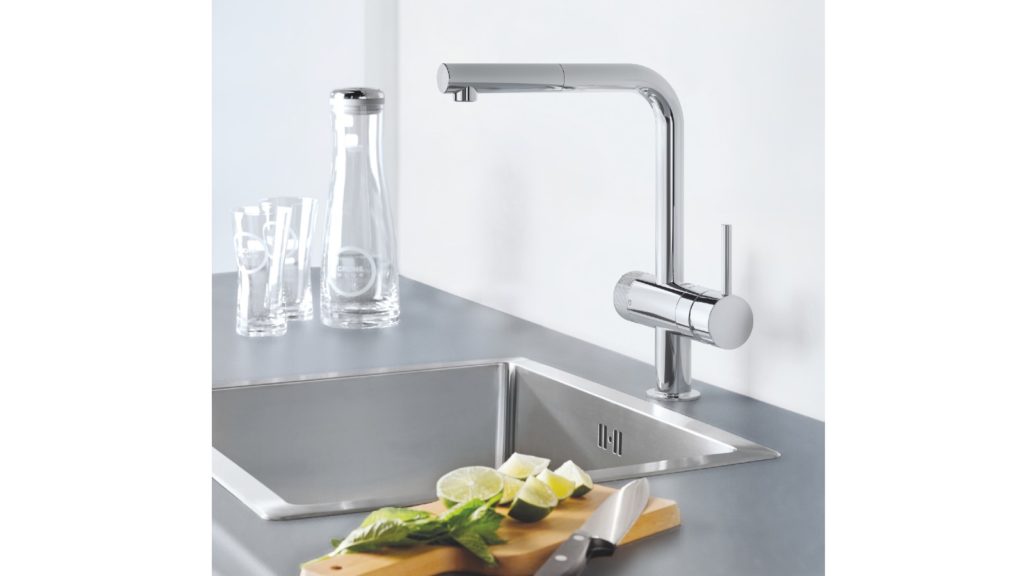
The Grohe Pure Blue comes with a choice of cooler sizes, either a medium or large depending on the customer and lifestyle needs. It is available in a choice of finishes from Chrome to Brushed Warm Sunset.
Approximately 12.7million tonnes of plastic enter the oceans each year and around 150 plastic bottles feature each mile on UK beaches, according to Condor Ferries.
Consumers are keen to minimise their impact on sealife, as brand manager at Perrin & Rowe EMEAA Jonathan Britton reports: “The recognition that single use water bottles are a significant part of our plastic waste continues to drive sales of filtered water taps for the home.
“And of course, over the last year more people have been working from home, and want to drink filtered water – as they would do from the water cooler at work.”
Healthy lifestyle choice
Undoubtedly, the environment is key to the sale of filter water taps but in a post-COVID landscape is there now a greater focus on health?
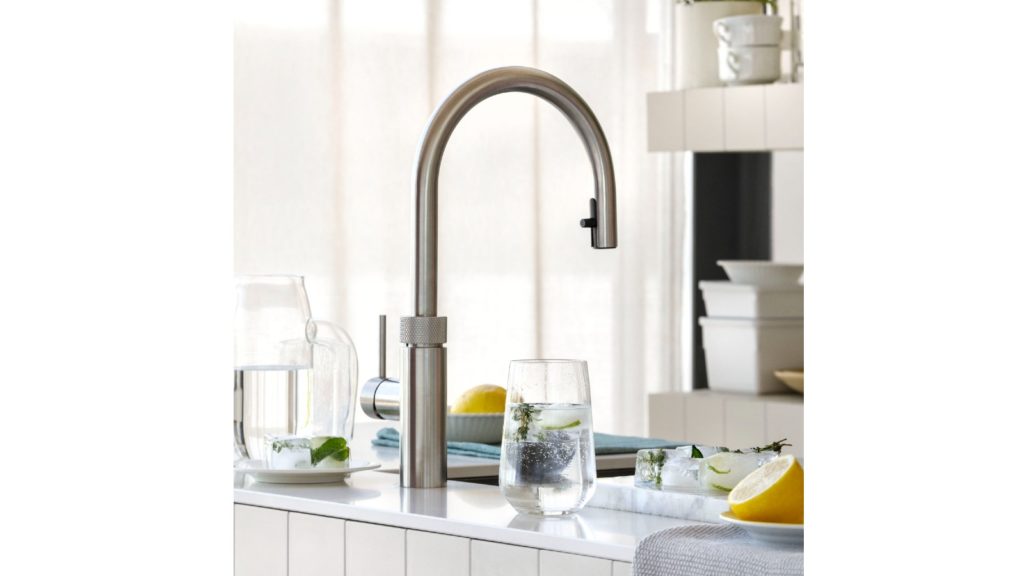
Cube can be added to any Quooker boiling water tap, adding chilled and sparkling water options. The CO2 cylinder provides 60 litres of sparkling water
The UK does have clean and safe drinking water supplies, but does the filter tap provide added peace of mind, and actually has that become of greater importance than sealife alone?
John Robinson of Blanco says it’s not a choice of either or, as the two are intrinsically linked: “The health benefits of removing contaminates found in mains water are undeniable…If you can have pure, filtered cold water in your kitchen at home and take it with you in a reusable bottle, then you are achieving the best of both worlds.
“Therefore, in response to which is the most important factor driving sales of filter taps, health or environment, I would have to say both. The two factors are inseparable.”
Matter of taste
Interestingly, the filter water tap is not only about removing impurities from drinking water, but also adding additional benefits to the quality of refreshments.
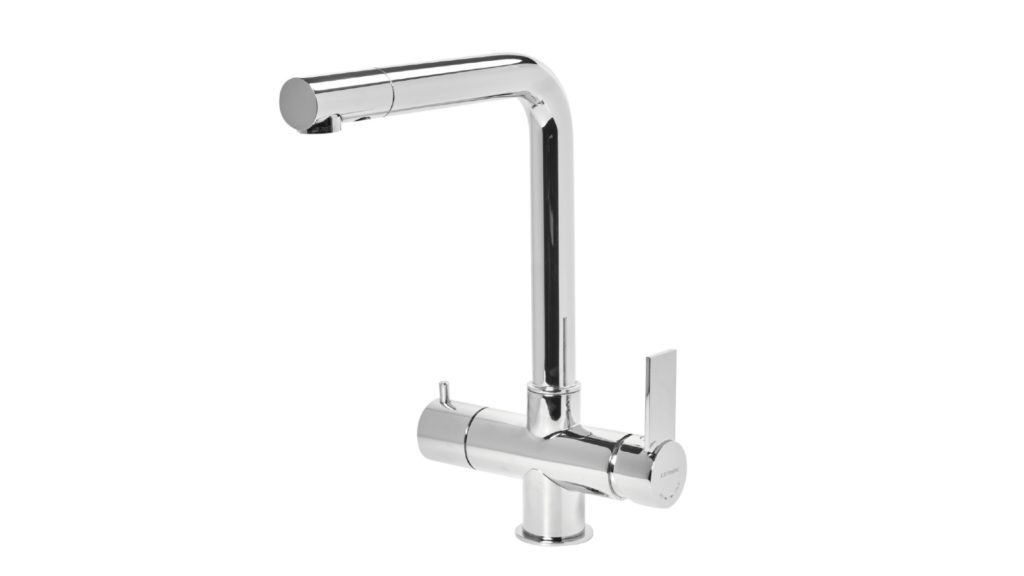
Forming part of Monarch Water‘s Wellbeing Three-Way Tap range, Aries provides filtered water in addition to cold and hot water. It boasts a LSF140 carbon block filter that reduces limescale build-up
Elina Enqvist-Twomey, leader category UK Lixil EMENA responsible for the Grohe Kitchen category, talks about its product development, set to be launched later this year: “Advanced filter technologies not only provide consumers with pure drinking water but also an improved taste, with filters such as Grohe Magnesium +Zinc filter also adding essential minerals to the water.
“These advanced technologies result in an improved takes in all water-based products from cooking vegetables to making beverages.”
In fact, quite simply, better tasting water is a selling point in its own right.
Marketing manager of Abode Leanne Adamson reports: “It’s worth bearing in mind that many of us live in hard water areas, where limescale can affect the taste of the water.”
Offering some statistics on consumers’ reaction to the taste of drinking water, MD of Monarch Water and director of the United Kingdom Water Treatment Association Kevin Johnson adds: “According to the CCWater report by YouGov (2015), 8% of people usually prefer bottled water to tap water at home, but this number increases to 24% at work and 48% when on-the-go.
“Those who drink bottled water instead of tap water at home sited reasons including poor quality in terms of taste and/or smell (43%).”
Premium home filtration
Whether driven by taste or a green conscience, there are a vast array of filter taps for consumers with differing budgets – offering a variety of filtration, ambient, chilled and even in some cases sparkling water options.
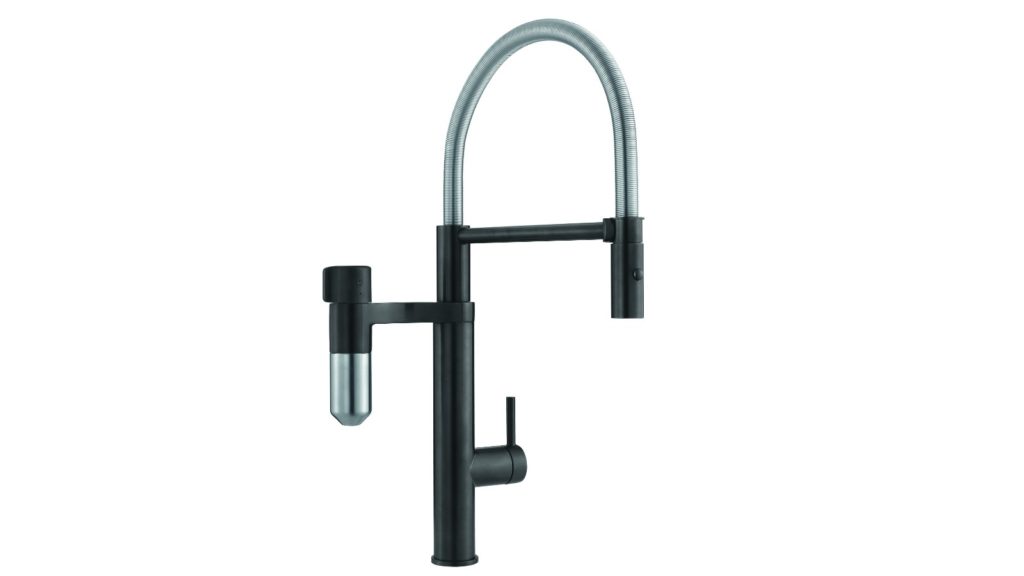
Franke‘s Vital Capsule removes bacteria and viruses while maintaining minerals such as magnesium and calcium. Consumers can replace the filter cartridge without having to go underneath the worktop
But the good news for kitchen retailers is that manufacturers report top-end models are performing well.
Communications manager of Franke UK Jeanette Ward reports: “Following its launch a couple of years ago, our Vital Capsule filter tap has become our best-selling model.
“Price-wise, it sits at the top end of our filter tap offering but the costs reflects the benefits of its patented premium quality water filter and its unique ‘above the worksurface design’ that enables consumers to change the recyclable filter cartridges without having to go underneath into the cabinet.”
And Elina Enqvist-Twomey of Grohe UK says its most popular filter tap offers and equally prestigious water supply “Grohe Blue Home offers consumers the luxury and convenience of having different options of still or sparkling water on taps, chilled to their preferred temperature at home.”
Moving further forwards, digitisation of home filtration may be the next step for consumers, as Elina Enqvist-Twomey adds: “The latest innovations within the world of filtered water taps are their smart qualities, with app connectivity being offered within the premium sector of the market. Grohe offers smart technologies with its Grohe Ondus apps, monitoring filter and CO2 capacity.”
Sustainable growth
Whatever the choice of filter tap, industry experts believe the market will continue to be key for kitchen retailers.
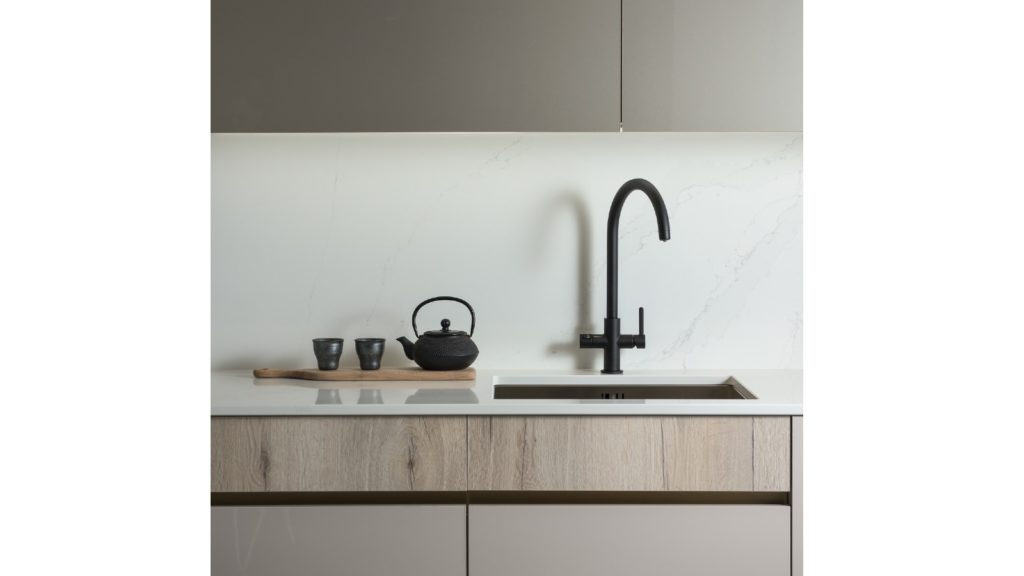
Part of the Abode Aquifier range of filtered water taps is Puria. It is available in Chrome, Brushed Nickel and Matt Black
Marketing communications and customer service manager for InSinkErator Europe and Russia Anne Kaarlela states: “The future needs to continue to be about sustainability. Appliances that reduce the impact on the environment are going to be at the top of the consumer wishlist.”
And Jeanette Ward of Franke UK agrees, concluding: “We anticipate good growth given the focus on wellbeing at home and the environment back on the agenda after being overshadowed by the pandemic.
“We have all seen how nature has repaired itself easily this past year and that has driven home even more the message that our changes in consumer behaviour can have significant positive results – and reducing plastic is very much part of that.”
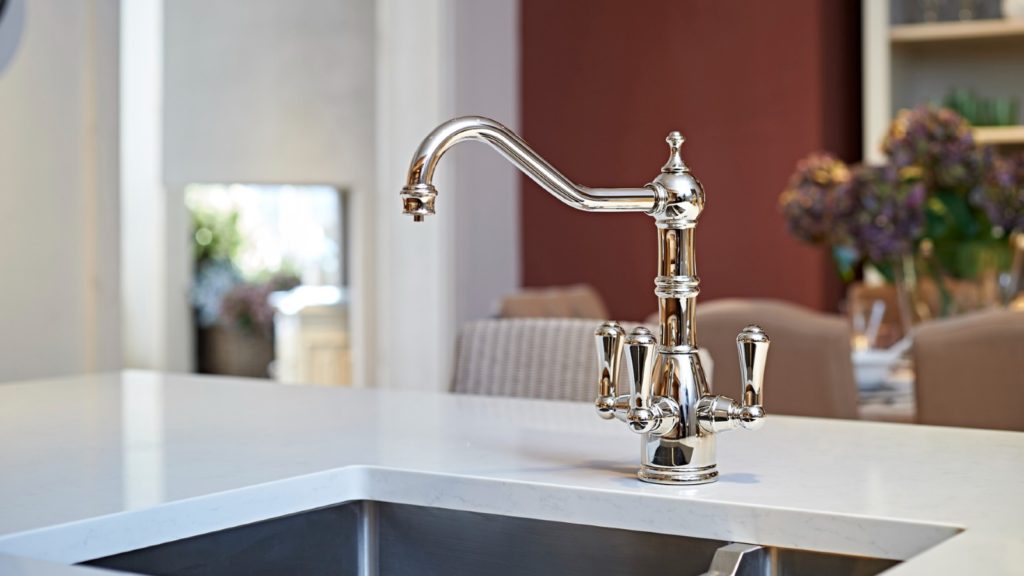
Country-style 1475 Picardie Mixer with Filtration from Perrin & Rowe is shown in Nickel but is available in a choice of eight finishes



